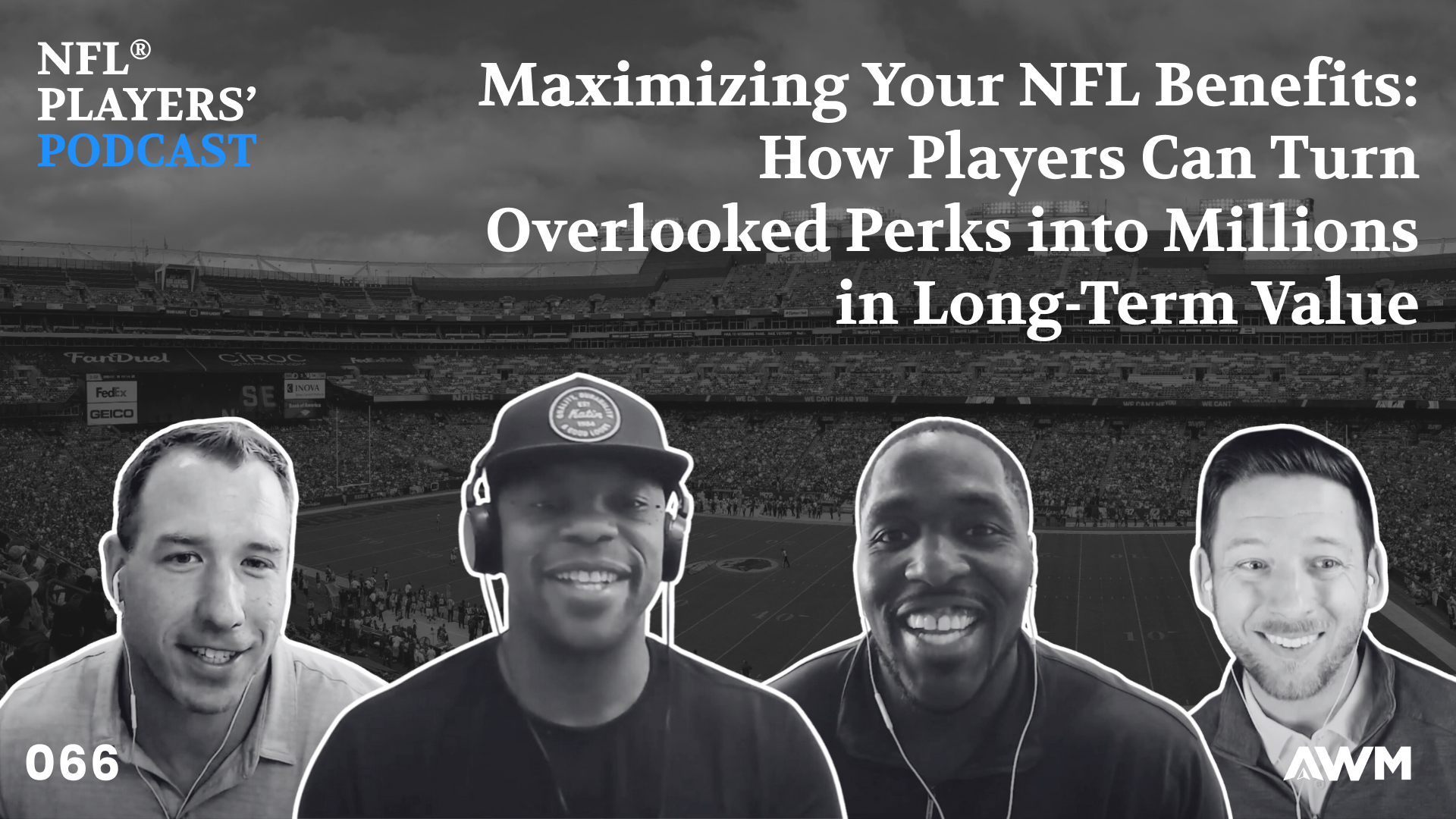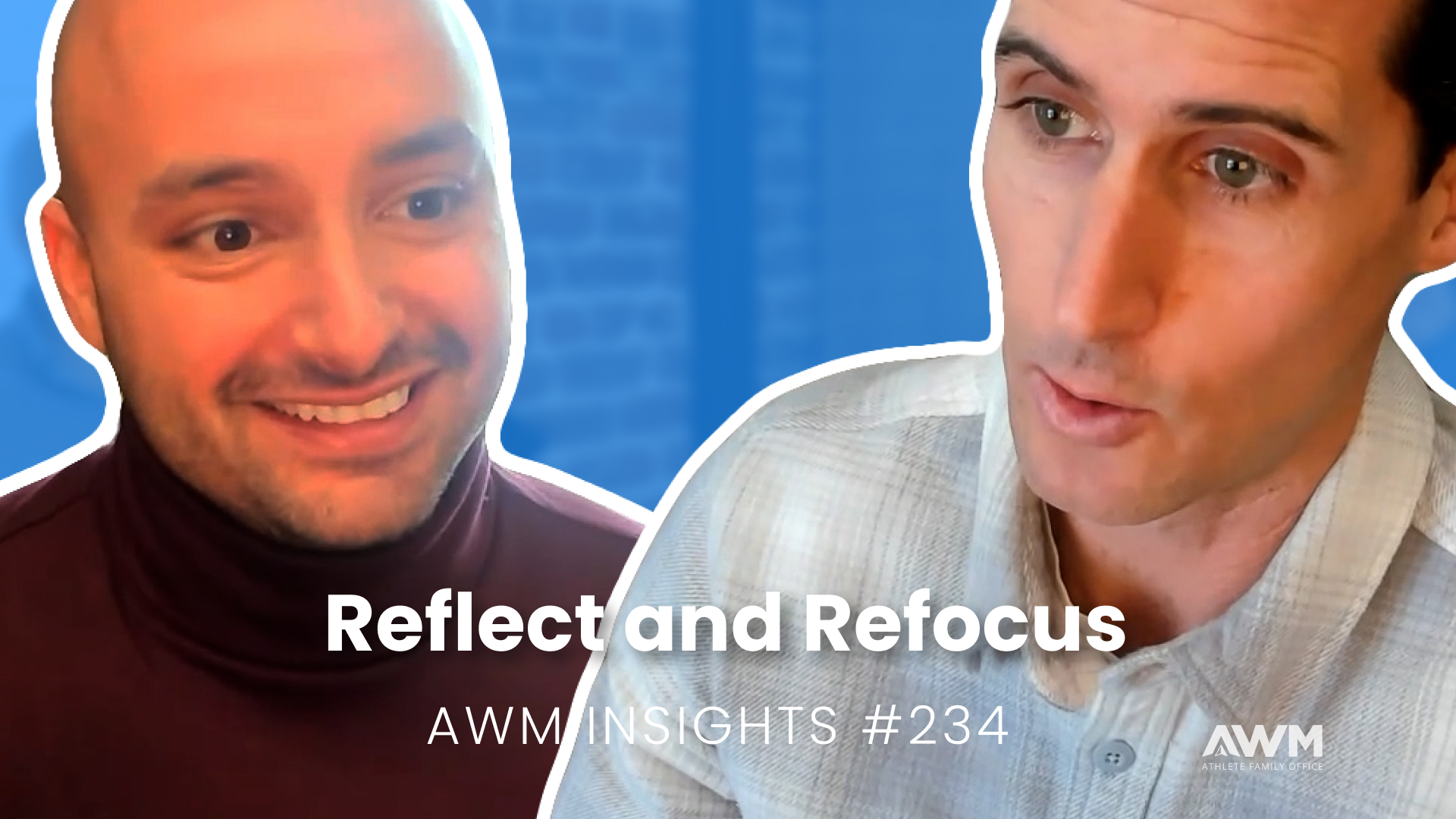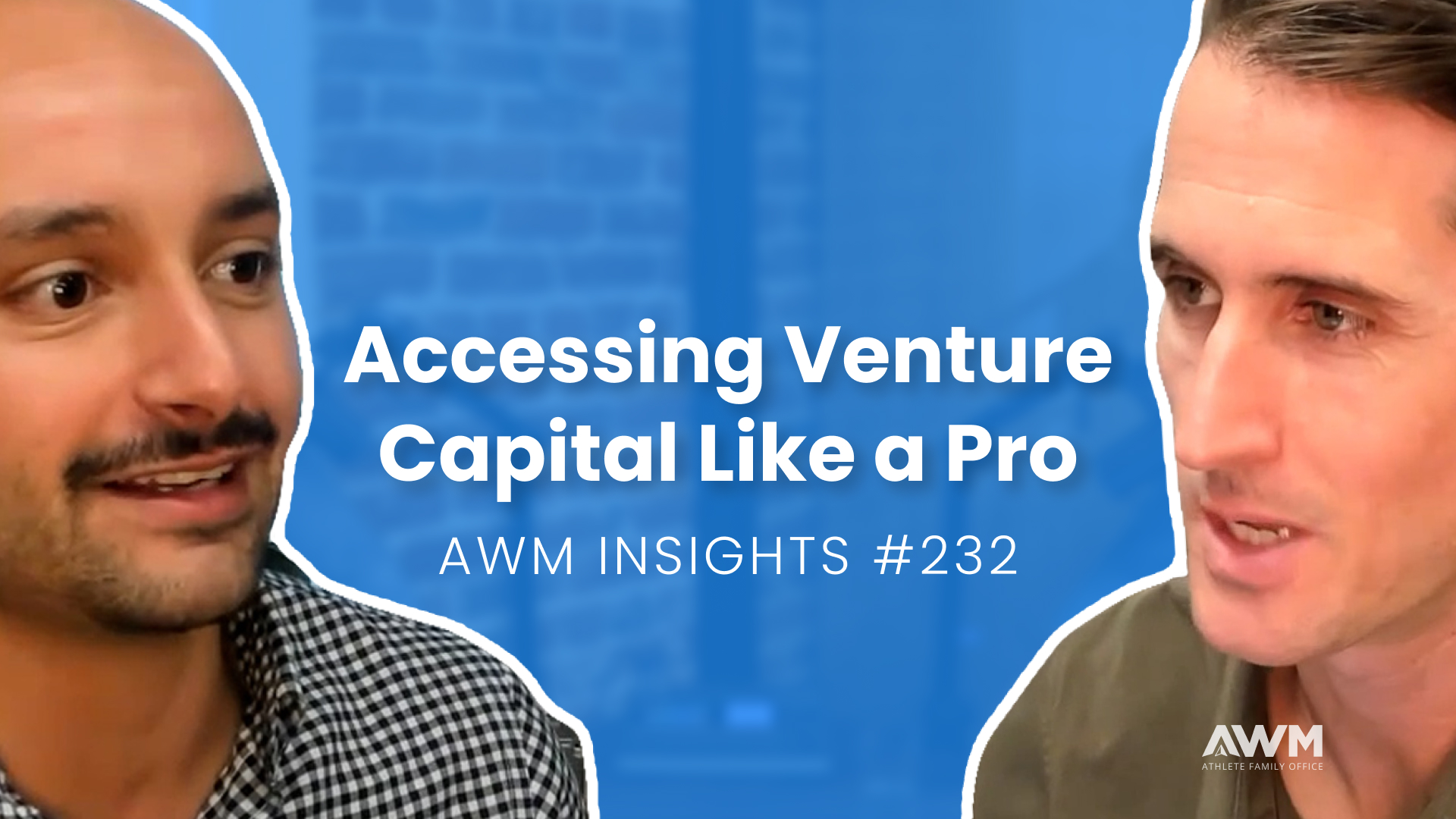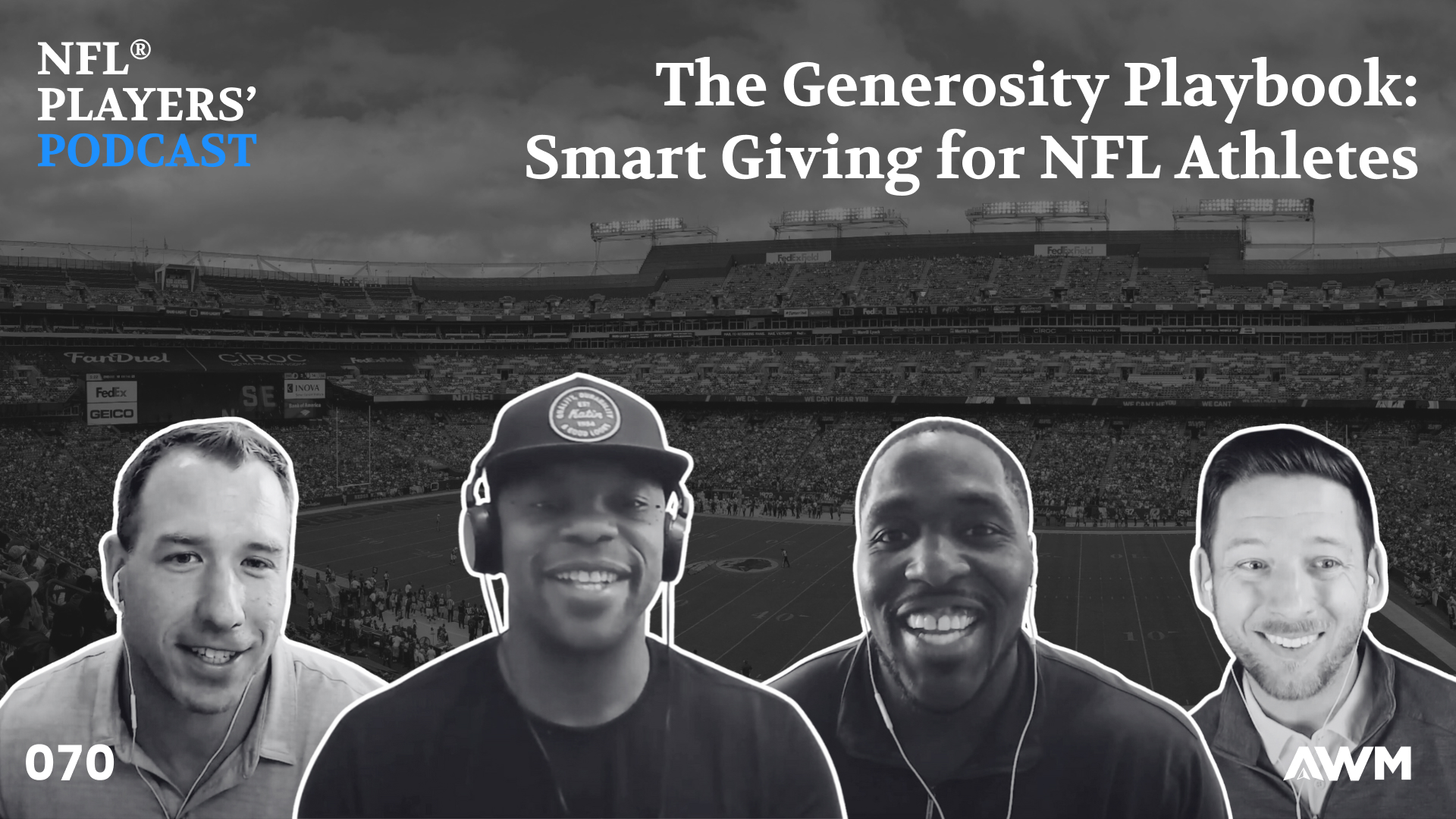Maximizing Your NFL Benefits: How Players Can Turn Overlooked Perks into Millions in Long-Term Value

In this episode of the NFL Players' Podcast, hosts Riccardo Stewart, Zach Miller, Sam Acho, and Jeff Locke dig into the overlooked world of NFL player benefits. Drawing on their combined decades of on-field experience and financial expertise, they reveal the essential perks that every player—and their families—should know about, from retirement savings to insurance options and unique programs that unlock real long-term value. You’ll hear candid stories, eye-opening numbers, and practical advice on making the most of these benefits—whether you’re a current player, a retired pro, or part of an athlete’s support team. Discover how understanding and maximizing these resources can change the game for your financial future.

Key Takeaways:
• NFL benefits are often the most valuable and least understood element of athlete compensation.
• Many athletes leave money on the table simply by not having a clear playbook for these hidden perks.
• Expert, integrated wealth management is essential for maximizing the long-term impact of every benefit—for you, your family, and future generations.
The hidden playbook inside every locker room
Ask any veteran: most players spend their prime focused on game prep, not back-office strategy. Benefits manuals gather dust while routines stay locked on the gridiron. Sam Acho painted the picture well: barely knowing an NFL 401k existed, he made the minimum contribution, then set it aside—never grasping its full potential impact until years later. “There was so much more opportunity that I was missing out on that actually wouldn’t have taken that much more work from me—just education and the right team.”
Then comes the rare example—like Jeff Locke, book in hand, earning his nickname “the professor.” Reading benefit docs in the hot tub drew odd looks from teammates, but those quirky habits paid big. Real experience says the player who treats the NFL like a business sets the stage for their family’s future. Zach Miller tallied $2.4 million in total NFL benefits. Every maxed-out 401k, every injury tracked for future line of duty claims, and every tuition reimbursement accepted stacked up. His message: align your game plan off the field as deliberately as you do on it.
Every benefit is a move in the financial game plan
What are the real moves? Start with the basics: the 401k is bread-and-butter, but the capital accumulation plan (CAP) is like having an extra option play—team-funded, but player-directed. Don’t invest it, and you stall the drive. Then there’s life insurance—league-funded coverage that can lead players to buy redundant private policies out-of-pocket, draining resources. Line of duty and disability require tactical awareness: miss reporting an injury and critical future payments can be lost, sometimes for years.
Health coverage goes beyond the basics: tuition reimbursement for degrees and professional education, plus a health reimbursement account (HRA) that, with the right clock management, can defray premiums and costs for as long as 25 years. Zach Miller’s HRA became his first stop for healthcare spending after the NFL’s insurance phased out—he advises using the HRA down to the penny, not letting hard-won cash sit idle and lose ground to inflation. Foundation matching grants exist for players who coach, mentor, or support community initiatives: file the forms, and the NFL Foundation boosts your impact—money on the table, waiting for a claim.
Championship outcomes depend on an integrated front office
Staggering numbers get lost when benefits are seen as extras, not essential. Hundreds of thousands, sometimes more, vaporize for lack of integrated planning. AWM Capital sees it weekly: families who assumed “the basics were being handled” discover years later that vital opportunities fell through the cracks—lost investment returns, unfunded education, missed insurance coverage, or unclaimed disability grants.
A true family office wears every hat: investment manager, benefits coach, play-caller, and historian—tracking every injury, every education grant, every insurance transition. This team doesn’t settle for “good enough”—they demand every piece of the compensation puzzle fits together.
Stewardship is the championship mindset
A legacy is built on detail-driven stewardship. You wouldn’t expect a football team to win with a single star and no coordinator. Championship families demand the same vigilance: know every benefit, run every play, claim every value you’ve earned. Work with a team who’s lived it, knows the playbook, and treats your family’s future like the biggest game on the schedule. Because in the AWM Capital family office, every move matters for your hundred-year family.
Transcript
Share this post
Related articles
No items found.
Your Family Office

We're here to help you navigate.
Our advisors are ready to serve as your Athlete Family Office.










